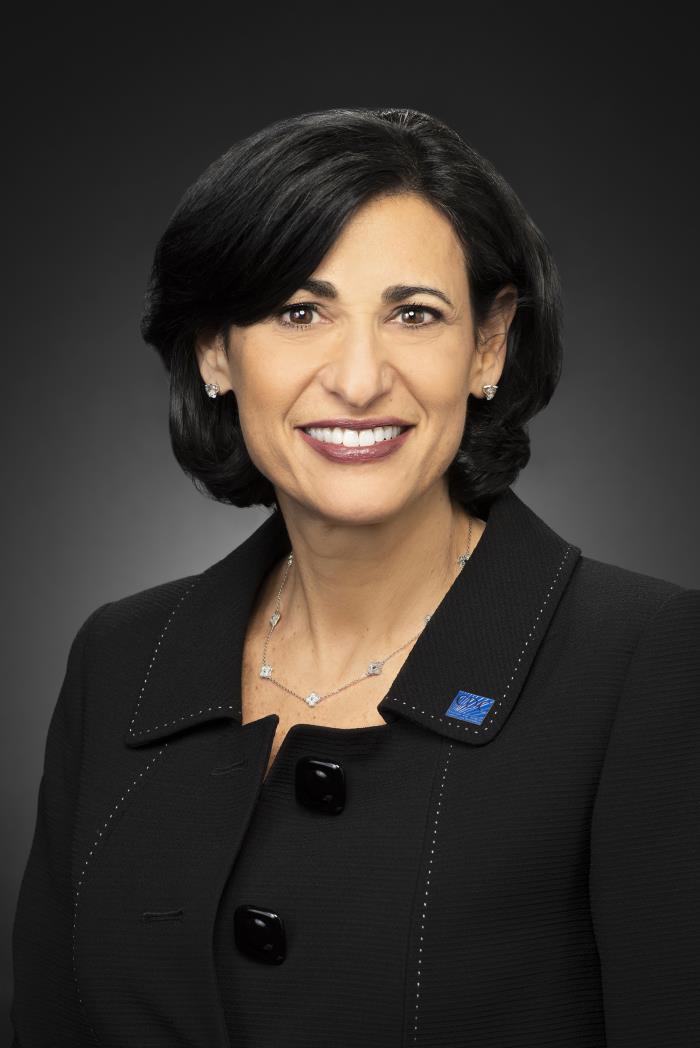
UNITED STATES: New Rules for Vaccinated Travelers
On April 2, the Centers for Disease Control and Prevention (CDC) updated its travel guidance for fully vaccinated people to reflect the latest evidence and science. Given recent studies evaluating the real-world effects of vaccination, CDC recommends that fully vaccinated people can travel at low risk to themselves. A person is considered fully vaccinated two weeks after receiving the last recommended dose of vaccine.
Fully vaccinated people can travel within the United States and do not need COVID-19 testing or post-travel self-quarantine as long as they continue to take COVID-19 precautions while traveling – wearing a mask, avoiding crowds, socially distancing, and washing hands frequently.
“With millions of Americans getting vaccinated every day, it is important to update the public on the latest science about what fully vaccinated people can do safely, now including guidance on safe travel,” said CDC Director Dr. Rochelle Walensky. “We continue to encourage every American to get vaccinated as soon as it’s their turn, so we can begin to safely take steps back to our everyday lives. Vaccines can help us return to the things we love about life, so we encourage every American to get vaccinated as soon as they have the opportunity.”
Because of the potential introduction and spread of new SARS-CoV-2 variants, differences in disease burden and vaccines, and vaccine coverage around the world, CDC is providing the following guidance related to international travel:
· Fully vaccinated people can travel internationally without getting a COVID-19 test before travel unless it is required by the international destination.
· Fully vaccinated people do not need to self-quarantine after returning to the United States, unless required by a state or local jurisdiction.
· Fully vaccinated people must still have a negative COVID-19 test result before they board a flight to the United States and get a COVID-19 test 3 to 5 days after returning from international travel.
· Fully vaccinated people should continue to take COVID-19 precautions while traveling abroad.
The guidance issued does not change the agency’s existing guidance for people who are not fully vaccinated. Unvaccinated travelers should still get tested 1-3 days before domestic travel and again 3-5 days after travel. They should stay home and self-quarantine for 7 days after travel or 10 days if they don’t get tested at the conclusion of travel. CDC discourages non-essential domestic travel by those who are not fully vaccinated.
Due to the large number of Americans who remain unvaccinated and the current state of the pandemic, CDC recommends that fully vaccinated people continue to take COVID-19 precautions, such as wearing a mask, social distancing, washing hands frequently and avoiding crowds when in public, when visiting with unvaccinated people from multiple other households, and when around unvaccinated people who are at high risk of getting severely ill from COVID-19.
AFRICA: Dozens of Abductees Released
Fifty-eight women and children of more than 600 who were abducted last year during vicious intercommunal fighting in South Sudan, have been reunited with their families, the UN Spokesperson told reporters on April 5.
Since December, the UN Mission in South Sudan, UNMISS, has been working with agencies, supported by the United States and the United Kingdom, to broker peace between the Lou Nuer, Murle and Dinka Bor ethnic groups.
The exchange came about following a community-led peace, negotiated in Jonglei State between the three communities.
Women and girls have been frequently abducted in Jonglei, because of their economic importance in demanding a bride price paid in the form of cattle, said UNMISS in a statement on April 2.
“The UN Mission believes that as many as 686 women and children were abducted during the clashes that took place between January and August of last year,” Spokesperson Stéphane Dujarric told journalists at the regular daily briefing.
“Tragically, these abductions often involve sexual violence,” he added.
After a recent peace conference in Pieri, where traditional leaders, women and so-called “cattle camp” leaders had discussed compensation for lives lost, and the return of abducted women and children, UNMISS said that UN helicopters had helped transport the freed women and children so they could be reunited with their families.
Those abducted and freed, are receiving support from Save the Children, and local NGOs Grassroots Empowerment and Development Organization (GREDO) and the Community Action Organization (CAO).
EUROPE: WHO to Europe: Hurry Up
The World Health Organization (WHO) is imploring officials in Europe to speed up the vaccination process of citizens there.
Last week saw increasing transmission of COVID-19 in the majority of countries in the WHO European Region, with 1.6 million new cases and close to 24,000 deaths. The Region remains the second most affected by SARS-CoV-2 of all the world’s regions, with the total number of deaths fast approaching 1 million and the total number of cases about to surpass 45 million.
“Only 5 weeks ago, the weekly number of new cases in Europe had dipped to under 1 million, but now the Region’s situation is more worrying than we have seen in several months. There are risks associated with the increased mobility and gatherings over the religious holidays. Many countries are introducing new measures that are necessary and everyone should follow as much as they can,” said Dorit Nitzan, Regional Emergency Director for the WHO Regional Office for Europe.
Across the Region, 50 countries or territories have reported the variant of concern B.1.1.7, initially detected by the United Kingdom and now the predominant variant in the Region. As this variant is more transmissible and can increase the risk of hospitalization, it has a greater public health impact and additional actions are required to control it.
At the European regional level, new cases are increasing in every age group except in people 80 years and older. It is only in this most vulnerable population that we have seen a steady decline in cases and a decreasing proportion of COVID-19 deaths since the beginning of 2021, reflecting early signs of the impact of vaccination.
New data from Public Health England suggest that COVID-19 vaccines have saved, at the very least, over 6000 lives among people over 70 since vaccination started in December 2020. Similarly, data from Israel show that the Pfizer–BioNTech vaccine is around 90% effective at preventing infection, severe disease and hospitalization after the second dose.
“Vaccines present our best way out of this pandemic. Not only do they work, they are also highly effective in preventing infection. However, the roll-out of these vaccines is unacceptably slow. And as long as coverage remains low, we need to apply the same public health and social measures as we have in the past, to compensate for delayed schedules. Let me be clear: we must speed up the process by ramping up manufacturing, reducing barriers to administering vaccines, and using every single vial we have in stock, now,” said Dr Hans Henri P. Kluge, WHO Regional Director for Europe.
Vaccination together with continued public health and social measures will eventually bring an end to the pandemic. For that to happen, a scale-up of both vaccine production and vaccination is required, as well as continued adherence to public health and social measures.
“The greatest determinant of how many people get infected and how many people die in the coming weeks is what you as an individual do – or don’t do. We have seen it time and time again: virus spread can be stopped. My message to governments in the Region is therefore that now is not the time to relax measures. We can’t afford not to heed the danger. We have all made sacrifices, but we cannot let exhaustion win. We must keep reining in the virus,” Kluge concluded.
SOUTH AMERICA: Illegal Gun Crackdown
A police operation targeting firearms trafficking across South America has seen thousands of illicit firearms seized, thousands of arrests and investigative leads generated on crime networks and smuggling routes.
Over three weeks (March 8-28), Operation Trigger VI saw the arrest of almost 4,000 suspects across all 13 South American countries, with some 200,000 illicit firearms, parts, components, ammunition and explosives recovered.
Hundreds of thousands of people and vehicles were searched at suspected hotspots and air, land and sea borders across the region.
Coordinated by INTERPOL and the United Nations Office on Drugs and Crime (UNODC), the joint operation enabled police, customs, border and prosecution services to work together, carrying out nearly 10,000 checks against INTERPOL databases to track illegal firearms and identify potential links with organized crime.
Whilst investigations continue across the region, initial results and highlights include:
· Uruguayan arrest of members of a gang using social media to promote violence by posting photographs of themselves flaunting illegal guns.
· Seizure in Peru of large amounts of ammunition arriving from the Brazil-Argentina-Paraguay tri-border area, and arrest of two US-wanted fugitives the subject of INTERPOL Red Notices for serious drug crime. In Lima, explosives experts intercepted and recovered undetonated grenades in a public square further to a lead exchanged during operations.
· Chilean arrest of a Colombian national wanted via an INTERPOL Red Notice for firearms trafficking and serious drug crime.
· Detection of the illegal sale of 90,000 pieces of ammunition, with investigations expected to lead to arrests in the days to come.
“Firearms present a very serious threat to South America’s security and stability. This is why multi-agency transnational cooperation is essential to identify and dismantle the organized crime and terrorist groups involved,” said INTERPOL Secretary General Jürgen Stock.
“Operation Trigger VI has seen thousands of illicit weapons taken out of the hands of criminals and is testimony to the commitment of South American law enforcement despite the challenges of a global pandemic,” added Secretary General Stock.
With firearms trafficking intrinsically linked to a wide range of other serious crime, results also included:
· Police forces in Brazil’s 27 states and the Brazilian Federal Police confirmed the clear link between firearms trafficking and fraud, including the sale of counterfeit guns between gangs.
· Seizure by Brazil’s Army and Federal Police of more than 60 illegal firearms at a dealership suspected of using counterfeit documents to divert firearms and ammunition. Officers arrested the man suspected of heading the counterfeiting and smuggling network.
· Destruction of 27 cocaine labs across Bolivia including one at a reserve in the Gran Chaco region on the Paraguayan border with a camouflaged runway for small planes and sophisticated telecommunications systems.
· Rescue of 33 suspected human trafficking victims thought to be from Haiti during a firearms raid at La Paz bus terminal.
· Collective seizure of more than 21 tons of cocaine, marijuana and chemicals
Pre-operational training delivered jointly by INTERPOL and UNODC ensured that officers and prosecutors had the skills needed to detect, identify, investigate and prosecute firearms crime holistically, with each firearm considered as part of a larger, connected scheme.


